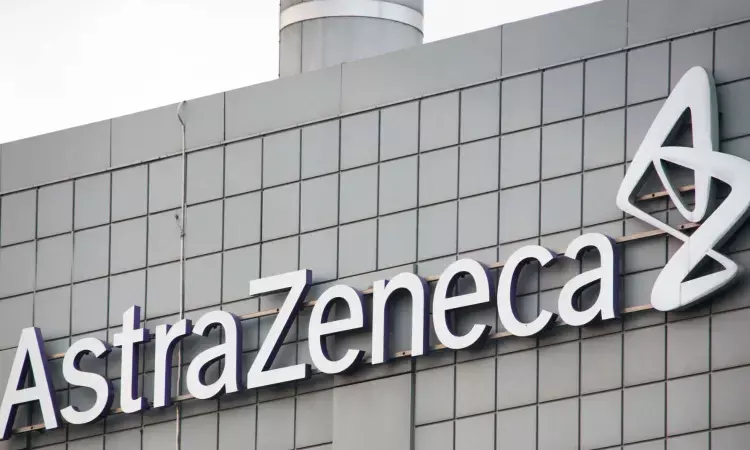- Home
- Medical news & Guidelines
- Anesthesiology
- Cardiology and CTVS
- Critical Care
- Dentistry
- Dermatology
- Diabetes and Endocrinology
- ENT
- Gastroenterology
- Medicine
- Nephrology
- Neurology
- Obstretics-Gynaecology
- Oncology
- Ophthalmology
- Orthopaedics
- Pediatrics-Neonatology
- Psychiatry
- Pulmonology
- Radiology
- Surgery
- Urology
- Laboratory Medicine
- Diet
- Nursing
- Paramedical
- Physiotherapy
- Health news
- Fact Check
- Bone Health Fact Check
- Brain Health Fact Check
- Cancer Related Fact Check
- Child Care Fact Check
- Dental and oral health fact check
- Diabetes and metabolic health fact check
- Diet and Nutrition Fact Check
- Eye and ENT Care Fact Check
- Fitness fact check
- Gut health fact check
- Heart health fact check
- Kidney health fact check
- Medical education fact check
- Men's health fact check
- Respiratory fact check
- Skin and hair care fact check
- Vaccine and Immunization fact check
- Women's health fact check
- AYUSH
- State News
- Andaman and Nicobar Islands
- Andhra Pradesh
- Arunachal Pradesh
- Assam
- Bihar
- Chandigarh
- Chattisgarh
- Dadra and Nagar Haveli
- Daman and Diu
- Delhi
- Goa
- Gujarat
- Haryana
- Himachal Pradesh
- Jammu & Kashmir
- Jharkhand
- Karnataka
- Kerala
- Ladakh
- Lakshadweep
- Madhya Pradesh
- Maharashtra
- Manipur
- Meghalaya
- Mizoram
- Nagaland
- Odisha
- Puducherry
- Punjab
- Rajasthan
- Sikkim
- Tamil Nadu
- Telangana
- Tripura
- Uttar Pradesh
- Uttrakhand
- West Bengal
- Medical Education
- Industry
AstraZeneca Soliris approved in Japan for paediatric patients with generalised myasthenia gravis

Cambridge: AstraZeneca's Soliris (eculizumab) has been approved in Japan for expanded use to include the treatment of generalised myasthenia gravis (gMG) in paediatric patients who are anti-acetylcholine receptor (AChR) antibody-positive and whose symptoms are difficult to control with high-dose intravenous immunoglobulin (IVIG) therapy or plasmapheresis (PLEX).
The approval by the Japanese Ministry of Health, Labour and Welfare (MHLW) was based on results from the Phase III trial of Soliris in paediatric patients with refractory gMG.
In the trial, Soliris demonstrated clinical benefit in paediatric patients with refractory gMG who previously failed immunosuppressive treatment and continued to experience significant unresolved disease symptoms. Soliris showed significant improvement in the primary endpoint of change from baseline in Quantitative Myasthenia Gravis (QMG) total score at week 26, a physician-reported scale assessing disease severity and function (-5.8 [95% CI -8.4, -3.13], p=0.0004).
gMG is a rare, debilitating, chronic, autoimmune neuromuscular disease that leads to a loss of muscle function and severe weakness.
Keiko Ishigaki, MD, PhD, Department of Pediatrics, Tokyo Women's Medical University, School of Medicine, Tokyo, Japan, said, “gMG is challenging to manage in paediatric patients, as current therapies available to this population, such as immunosuppressants, may not offer adequate control as the disease progresses. The expanded approval of Soliris in Japan demonstrates the impact of C5 complement inhibition in treating gMG, offering paediatric patients a targeted option with the potential to preserve muscle function and reduce disease severity.”
Marc Dunoyer, Chief Executive Officer, Alexion, said, “Paediatric patients living with gMG can become nonresponsive to standard treatments and continue to experience symptoms that impact their mobility, speech and breathing. Our first-in-class C5 inhibitor Soliris has the potential to improve outcomes and quality of life for paediatric patients and their families, and we take pride in delivering this first and only targeted therapy to the paediatric gMG community in Japan.”
The efficacy and safety of Soliris in paediatric patients is consistent with the established profile of Soliris in clinical trials involving adults with refractory gMG. In the Phase III clinical trial of paediatric patients, the majority of reported adverse events were considered mild or moderate.
Soliris was first approved in Japan in 2017 for the treatment of certain adults with gMG and is also approved for certain adults with gMG in the US, China and the European Union (EU). Soliris was also recently approved in the EU for expanded use to include the treatment of refractory gMG in children and adolescents aged six to 17 years who are AChR Ab+. Regulatory submissions for Soliris for the treatment of paediatric patients with gMG are currently ongoing or planned with multiple health authorities.
Ruchika Sharma joined Medical Dialogue as an Correspondent for the Business Section in 2019. She covers all the updates in the Pharmaceutical field, Policy, Insurance, Business Healthcare, Medical News, Health News, Pharma News, Healthcare and Investment. She has completed her B.Com from Delhi University and then pursued postgraduation in M.Com. She can be contacted at editorial@medicaldialogues.in Contact no. 011-43720751


